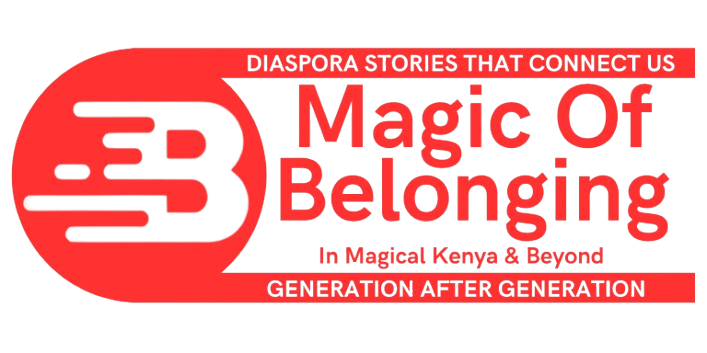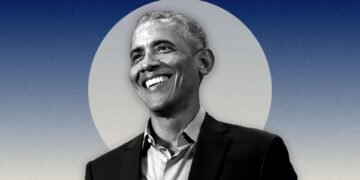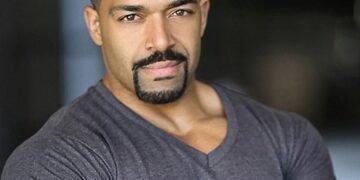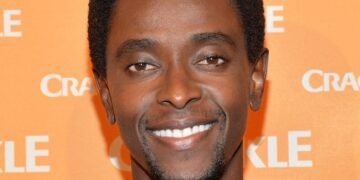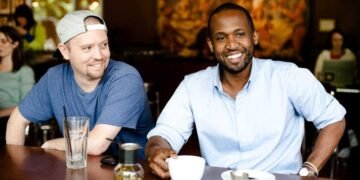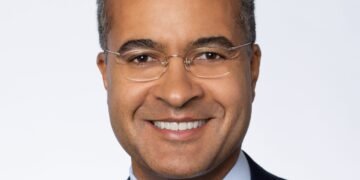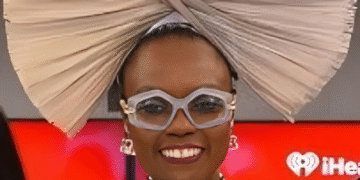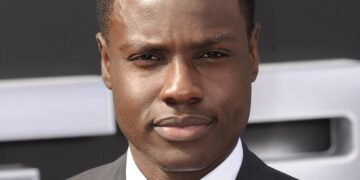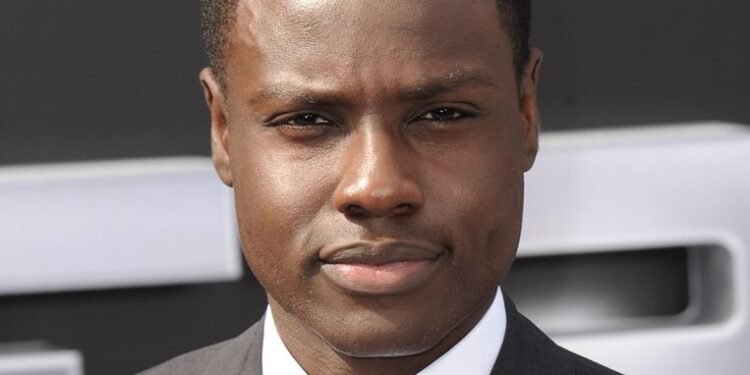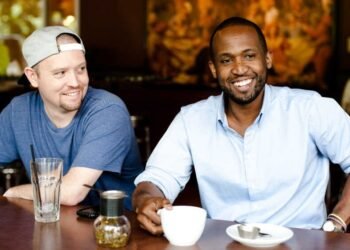In the heart of Los Angeles, inside a movie trailer lined with script pages and blinking call times, Dayo Okeniyi once paused and asked himself a simple question: “How did a boy from Lagos, with a Kenyan mother who taught Shakespeare and a Nigerian father who believed in structure, end up here?”
The answer, like his name—Oladayo (“wealth has come in the form of joy”) and Okeniyi (“sent from heaven”)—is layered with belonging. Not just to a single country or craft, but to a tradition of African storytelling, diaspora resilience, and global creativity.
Scene One: Born at the Crossroads
Long before he held a lightsaber or ran from futuristic cyborgs, Dayo was a barefoot boy on the streets of Lagos—dodging cars to buy meat pies, reenacting action scenes in the courtyard, and listening to his Kenyan mother narrate stories with the cadence of a griot.
He was born in Jos, Nigeria, in 1988—the youngest of five. His father, a customs officer from Ogbomosho, built the rules; his mother, a literature teacher from Nairobi, broke them wide open with poetry and theater.
“I’m the product of creative nepotism,” he laughs now. “She [Kenyan Mother] cast me and never looked back.”
In their home, Wole Soyinka shared shelf space with Ngũgĩ wa Thiong’o. Dayo’s world stretched from Yoruba proverbs to Swahili lullabies, from Chinua Achebe to C.S. Lewis. When his mother directed him in a school nativity play at age 9, assigning him the role of Joseph without audition, he didn’t know it yet—but a lifelong script had been set in motion.
“I’m the product of creative nepotism,” he laughs now. “She cast me and never looked back.”
Scene Two: The American Leap
In 2003, everything shifted. The Okeniyi family relocated to Indiana, USA, when Dayo was just 15. It was the classic immigrant story: start again, dream bigger, work twice as hard. He remembers feeling like an outsider—until art, once again, gave him a voice.
He enrolled at Anderson University, choosing a “safe” major—Visual Communications Design—to appease his father’s pragmatism. But backstage, he was chasing something wilder. He joined campus plays, studied monologues in secret, and whispered to himself: “Give yourself seven years. Either you make it… or you tried.”
His mother’s voice echoed again: “Be excellent at whatever you do. But always have a plan.”
So he moved to Los Angeles in 2010. With no agents, no safety net, and just enough money to last six months, he went all in.
Scene Three: The Name They Tried to Shorten
Hollywood was cold. Literally—he lived in an apartment with four roommates and a broken heater—and metaphorically. Every meeting, he was told to “maybe drop the name,” or “try something easier to pronounce.”
He refused. “My name is a prayer,” he told casting directors. “It means joy. It means purpose. It means I belong to something bigger than this industry.”
That resolve paid off. Just a year after arriving, he booked his breakout role as Thresh in The Hunger Games. The quiet, powerful tribute from District 11. His performance was brief but unforgettable—and the door cracked open.
Roles in Terminator Genisys, Shades of Blue, and Runner Runner followed. Still, Dayo wanted more than blockbuster credits. He wanted depth. Stories that spoke to his roots, not just his résumé.
Scene Four: Kenya, in the Margins of Every Scene
Though Dayo spent most of his youth in Nigeria and America, he often says: “Kenya is in the way I think. It’s in the way I tell stories.”
His mother, a proud Nairobian, introduced him to language as power. She taught him that stories were resistance, that characters were carriers of culture, that no scene was ever just entertainment—it was inheritance.
So when the opportunity came to play Shields Green, the real-life rebel slave in Emperor, Dayo didn’t hesitate. “This is the kind of story my mom raised me to tell,” he said. One about dignity, defiance, and Black liberation.
He also began developing his own scripts—including an Igbo psychological thriller about the ogbanje spirit child myth. The folklore echoes Kenya’s own oral traditions, forming a pan-African homage to the unseen forces that shape identity and legacy.
Scene Five: Building for the Diaspora
Dayo didn’t want to just succeed—he wanted to bring others along.
In 2017, he co-founded PVO (Positive Vibes Only), a lifestyle movement that throws high-end Afro-diaspora events across the U.S. and Ghana—but with a twist. Every party funds a community cause. Feed the homeless. Support infant healthcare in Nigeria. Raise awareness around mental health.
“My mom taught me that literature is not for the elite,” he says. “It’s for the people. Art should serve the village. This is our village now.”
He’s also formed Balcony Entertainment, a production and management company championing African and diaspora creatives. He’s passionate about developing African-centered stories that aren’t filtered through Western pity or poverty. Instead, he wants magic. Ambition. Glory.
“When is the Nigerian immigrant superhero story going to be told?” he challenges. “Or the Kenyan matriarch who runs a kingdom with her wisdom?”
Final Scene: Legacy Is a Language
In 2022, Dayo portrayed Charles Antetokounmpo in Disney’s Rise—a moving portrait of the Nigerian-Greek family behind basketball star Giannis Antetokounmpo. At the premiere, Giannis wept. Dayo did too. Because it wasn’t just a role. It was a mirror.
He saw his father’s quiet strength. His mother’s unwavering belief. And he saw the African diaspora, not as scattered, but as strategically placed—to tell stories that matter.
Today, Dayo moves between continents as easily as he moves between characters. He’s just as comfortable at a Ghanaian beach rave as he is on a Disney press tour. Kenya is still part of his emotional vocabulary. Nigeria is still his heartbeat. And Hollywood? That’s just one of many stages where he’s telling the African story his way.
Epilogue: The Home in His Name
Dayo Okeniyi’s journey reminds us that you don’t have to choose between where you’re from and where you’re going. You can be of Kenya and for the world. You can carry names that confuse others—but comfort your ancestors. You can throw parties that build communities. You can light up screens without dimming your story.
As he often says: “You can evolve beyond your culture. But you should never abandon it.”
That’s the power of his path. He didn’t lose himself on the way to fame—he found new ways to belong.
And that, right there, is the real magic.
The Review
Intel Core i7-7700K
A wonderful serenity has taken possession of my entire soul, like these sweet mornings of spring which I enjoy with my whole heart. I am alone, and feel the charm of existence in this spot, which was created for the bliss of souls like mine.
PROS
- Good low light camera
- Water resistant
- Double the internal capacity
CONS
- Lacks clear upgrades
- Same design used for last three phones
- Battery life unimpressive
